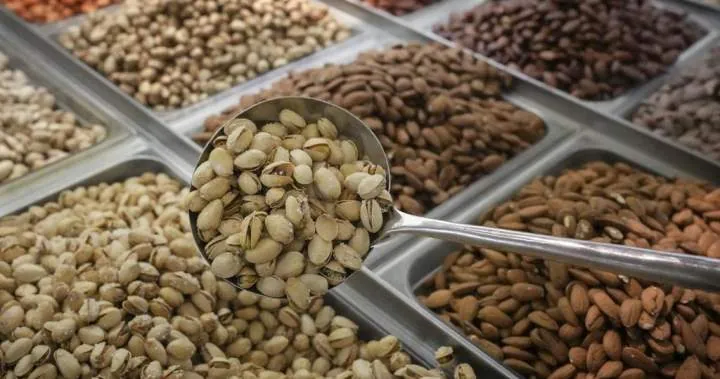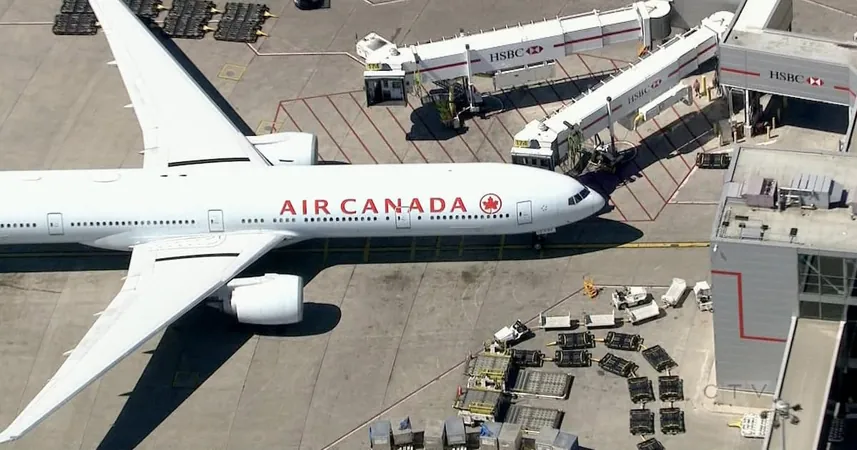
Tariff Turmoil: How New Trade Policies Are Shaking Up Global Supply Chains
2025-07-06
Author: Amelia
A Crucial Deadline Approaches
The clock is ticking on the 90-day pause of Donald Trump’s sweeping tariffs, set to expire Wednesday. This pivotal moment threatens to disrupt the intricate web of US trading relationships across the globe. However, the anxiety stemming from the past few months has already compelled many companies to reconfigure their supply chains significantly.
A Toymaker Takes a Stand
One particularly incensed Illinois toymaker has even gone as far as suing the US government over the impending tariffs. Rick Woldenberg, CEO of Learning Resources, says, "I'm inclined to stand up when my company is in genuine peril." With the majority of his educational toys produced in China, the looming tariffs—which fall on US importers, not Chinese exporters—could spell disaster. Woldenberg’s import tax bill soared from approximately $2.5 million a year to over $100 million in mere months when tariffs skyrocketed to 145%.
Shifting Supply Chains to Safer Waters
Even though the tariffs on Chinese imports have now settled at 30%, it remains unsustainable for many American companies. In response, Learning Resources is pivoting production away from China, relocating to Vietnam and India—countries that face an easier 10% tariff. Although these tariffs are set to expire soon, uncertainty hangs heavy over what will follow.
Double Trouble for Canadian Companies
Meanwhile, Canadian firms are grappling with their own set of challenges. Facing a double-edged sword, they are not only hit by the 25% tariffs imposed by the US but also retaliatory tariffs from Canada on American goods. This situation has led many companies to rethink their exporting strategies, as US partners grapple with increased prices due to the tariffs.
Adapting in Uncertain Times
Woldenberg has managed to shift about 16% of Learning Resources' manufacturing to new factories in Vietnam and India. "We have gone through the process of vetting the new factories, training them, and building reliable relationships," he explains. Yet he admits that the uncertainty of their capabilities still looms large. Switching production isn’t just about logistics—it’s costly and complex.
Legal Battlegrounds and Chicken Dilemmas
The legal battle against the tariffs is ongoing for Learning Resources. In a recent ruling, a judge deemed the tariffs unlawful, but an appeal from the US government means the company is still on the hook for payments.
The effects are stark for businesses like Cluck Clucks, a Canadian fried chicken chain that has felt the squeeze from Canada's retaliatory tariffs on US imports. Although the chicken is sourced locally, vital equipment like catering fridges and fryers come from the US, forcing Cluck Clucks to limit their menu options at new stores.
Future Plans Amidst Rising Costs
CEO Raza Hashim notes, "We can't live without the fridges, but we’ve decided to stop purchasing fryers from the US. With no Canadian alternative available, we are focusing on boneless dishes for the time being." He is mindful that rising costs could lead to higher prices for consumers. Yet, Cluck Clucks remains steadfast in its expansion effort, establishing local supply chains for American chicken while keeping one eye on future opportunities.









 Brasil (PT)
Brasil (PT)
 Canada (EN)
Canada (EN)
 Chile (ES)
Chile (ES)
 Česko (CS)
Česko (CS)
 대한민국 (KO)
대한민국 (KO)
 España (ES)
España (ES)
 France (FR)
France (FR)
 Hong Kong (EN)
Hong Kong (EN)
 Italia (IT)
Italia (IT)
 日本 (JA)
日本 (JA)
 Magyarország (HU)
Magyarország (HU)
 Norge (NO)
Norge (NO)
 Polska (PL)
Polska (PL)
 Schweiz (DE)
Schweiz (DE)
 Singapore (EN)
Singapore (EN)
 Sverige (SV)
Sverige (SV)
 Suomi (FI)
Suomi (FI)
 Türkiye (TR)
Türkiye (TR)
 الإمارات العربية المتحدة (AR)
الإمارات العربية المتحدة (AR)